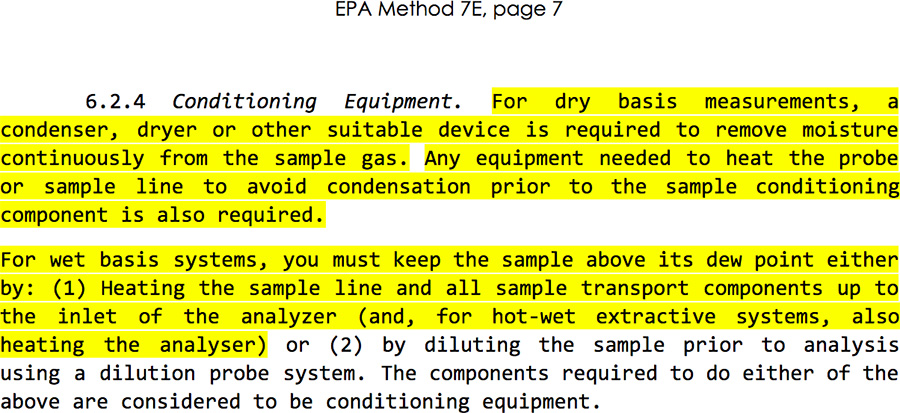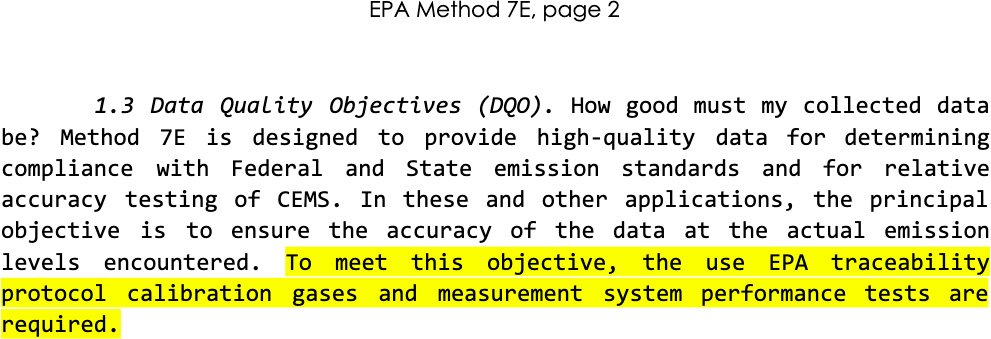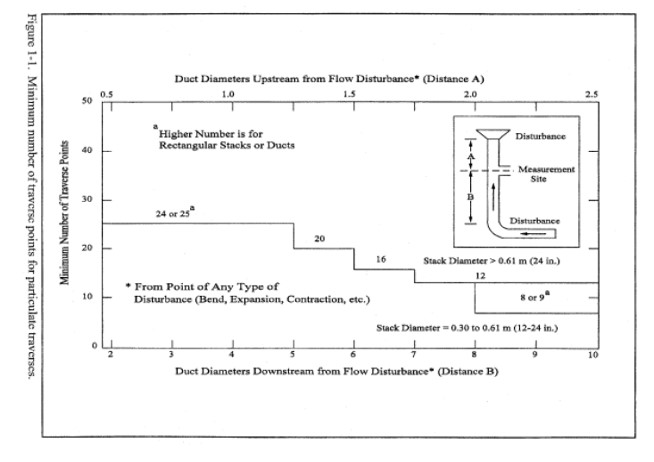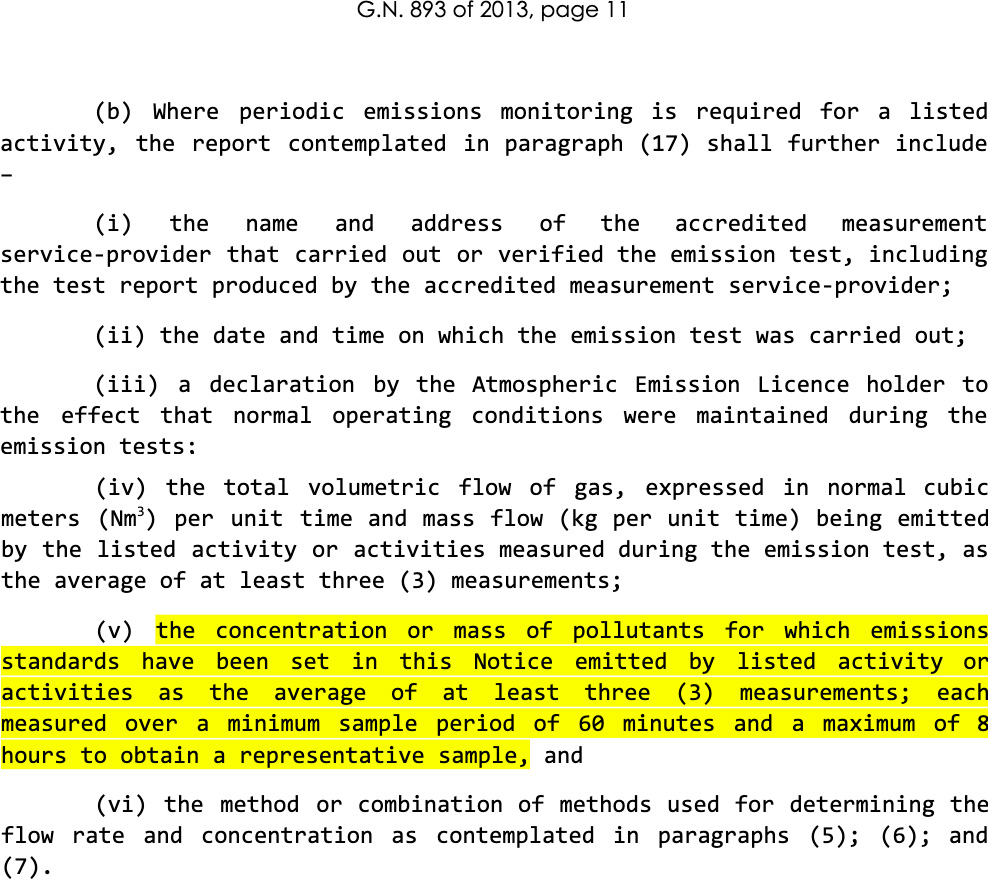Part 3: Report Reviewing Checklist for Air Quality Officers and Industry
In accordance with NEMAQA
The purpose of this checklist is to aid Air Quality Officers and industry in ensuring that emissions testing reports are compliant with NEMAQA. Yellow Tree has summarised the legal requirements for emissions testing into a simple and comprehensive check list of 11 points. If a report does not meet any one of the following criteria, the emissions testing results are non-compliant.
We believe that one cannot manage what one does not measure. It is imperative that accurate testing is conducted to ensure that measured emissions are a true reflection of the emissions that enter our atmosphere. It is incumbent upon all of us to protect the health of our communities by accurately quantifying emissions.
1. Is the isokinetic deviance reported in the emissions report?
Yes / No
2. Is the isokinetic deviance between 10 % or -10 %A, or between 15 % and -5 % B?
A EPA Method 5.
B BS EN Methods.
Yes / No
3. Was the oxygen concentration measured?
If an O2 reference is applicable to that subcategory.
Yes / No
4. Was the oxygen reference applied using the formula:
21-O2, reference
21-O2, measured ?
If an O2 reference is applicable to that subcategory.
Yes / No
5. Is the gas analyser equipped with a Peltier cooler (thermoelectric chiller)?
Acceptable models: Testo 350, Ecom J2KN, Horiba 250/350, Bacharach ECA 450, E-instruments 8500. Any lower model, is unacceptable.
Yes / No
7. Does the gas analyser have both NO and NO2 cells as required by EPA 7E?
These models have an NO and NO2 cell: Testo 350, Ecom J2KN, Horiba 250/350, Bacharach ECA 450, E-instruments 8500, Enerac 700. Any lower model, is unacceptable.
Yes / No
8. Is the gas analyser placed on calibration gas before & after each day of testing?
Calibration gas of SO2, NO, NO2, O2, CO or VOC must be present on site.
Yes / No
10. Is the testing conducted through two ports at between 12 - 24 points?
Applicable for circular stacks.
Yes / No
1, 2

5, 6

7

8

9

10


11

